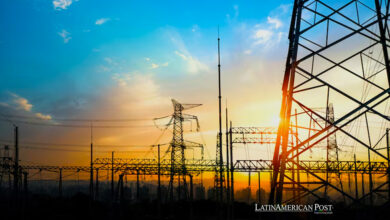Ethiopia will release all of its political prisoners
During the first week of January, the Ethiopian government declared that it will release all of its political prisoners at the same time that it will shut down the Maekelawi detention center, known as an establishment of torture used by the government.
The announcement was made at a press conference held by Prime Minister Hailemariam Desalegn and members of the main political parties of the coalition of the Ethiopian People's Revolutionary Democratic Front (EPRDF).
According to the news agency Reuters, during the press conference, the Prime Minister declared that: "the politicians currently prosecuted and those who were previously convicted will see their cases annulled or they will be pardoned”. This represents a step forward because, for the first time, the government recognizes detainees as political prisoners and not just as ‘criminals’, as they were called prior to the event.
Although the reason for the decision is not entirely clear, this comes after the EPRDF meeting held during December in which the fractures between the different members of the coalition were evident.
Some members, such as the Oromo People's Democratic Organization and the Amhara National Democratic Movement, have put pressure on the government of Desalegn to respect those who have spoken out against the political situation in the country.
It is said that the EPRDF government has used mass arrests to suppress opposition protests demanding reforms in the country through public demonstrations in different cities of Ethiopia during the last couple of years. These protests have been mostly in Oromia and Amhara and have left in prison figures such as Bekele Gerba, Oromo opposition politician who was arrested in December 2015.
Although the number of detainees is unknown, some estimate that the figure would be of thousands, although the criteria that the government will use to consider political prisoners and pardons is unclear.
According to Emmanuel Igunza, BBC correspondent in Ethiopia, around a thousand people have been detained in the name of anti-terrorism since 2015 and another 5,000 have ongoing cases since the arrests were made during the massive detentions of October last year.
However, the government's statement represents a sign of change and has been applauded by the international community and different non-governmental organizations such as Amnesty International and Human Rights Watch.
Prime Minister Desalegn has also indicated that this measure seeks to promote national reconciliation, although he has not indicated the period of time in which the releases will be made.
In this regard, one of the first to praise the decision of the Ethiopian government has been the NGO Human Rights Watch, which had previously reported the situation experienced by political prisoners in the country and the abuses committed in the Maekelawi detention center.
Felix Horne, HRW researcher for the Horn of Africa, was among the first to applaud the government's decision, although he has questioned the government's motives and its scope.
According to Horne, the government's decision "will not mean anything if the prisoners are simply relocated to another facility to suffer the same abuses”. He has questioned the scope of the new position and has expressed doubt, "if people can protest peacefully without fear of arrest, intimidation or imputation for political reasons", in the future.
Although the development of the initiative announced by the government of Hailemariam Desalegn remains to be defined, the release of political prisoners represents a light of hope in the face of the political repression exercised by local authorities.
Latin American Post | Laura Delgado
Copy edited by Susana Cicchetto





